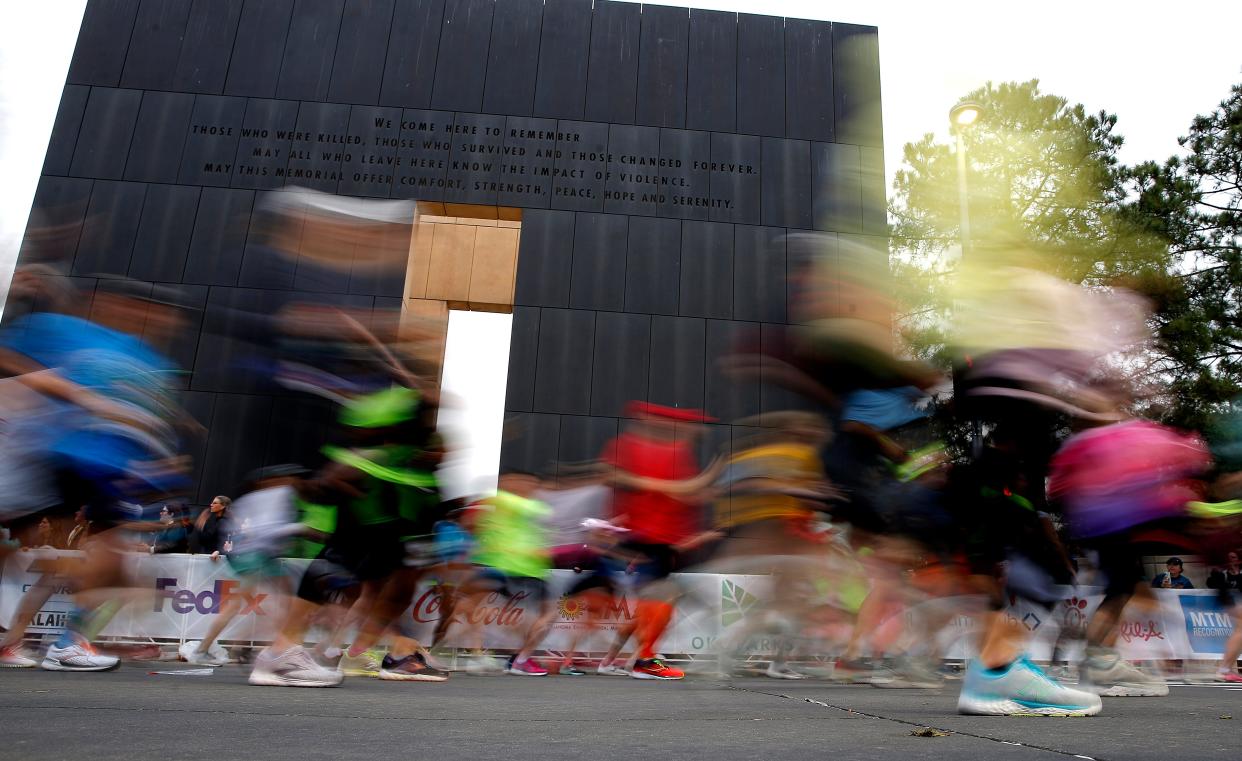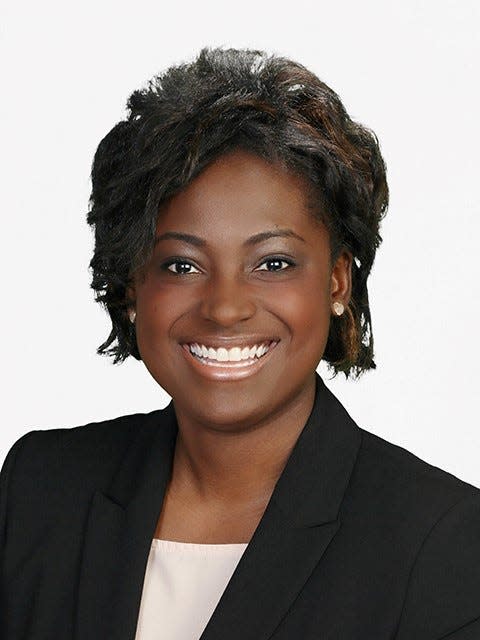Walking in Oklahoma City Memorial Marathon helped me connect, face past trauma | Guest

So much of my life has been spent walking to forget the trauma I endured; but recently I walked to remember the Oklahoma City bombing that occurred on April 19, 1995, and took the lives of 168 people, including children. Something about that walk reminded me of the power of traumatic events and the importance of how we choose to deal with them.
The runners began the 5K race among the walkers. Not long after we started walking, I heard someone shout in frustration: “Walkers, move right!” As my friend and I obediently moved right, between the runners, I thought about my life and how often I had walked through trauma before running from it.
When the bombing happened, Oklahomans walked through it. They cared for the injured, wounded and grieving in shock. Reality had changed their worlds in an unforgettable way. Forgetting may have seemed easier than remembering. Running from the pain of the past may have seemed more palatable and practical than remembering, but Oklahoma City chose to remember. They choose the harder path of rewalking through the trauma and remembering the unforgettable. In that way, they choose to overcome evil with goodness, to be the community that walks with those whose lives were permanently altered by unforeseen tragedy.
More: How OKC Memorial Marathon medic honors mom, who was killed in bombing
My home country, Liberia, walked through years of civil war. We could scarcely care for the injured, wounded and grieving because we were all the injured, wounded and grieving as we faced the bombings while experiencing the losses. Our walk through the war was brief in comparison to our run from the trauma that continues to mark our existence. We tell ourselves we're fine. We keep company with those who know. In our tight-knit communities, we pretend that what we walked through was normal. Even those of us who don't believe it was normal, stay silent as we carry the trauma.
We do what seems easier, but feels harder ― we forget. Yet our brains and bodies play games with us as we run from the trauma that has shaped us into constant states of hyperarousal and hypoarousal. There's little room for a window of tolerance as we fight to forget all we would rather not remember. The nightmares steal rest from us, the anxiety robs us of peace long after the war has ended. The unforgettable follows us with vicious relentlessness. It chases us as we race through life breathlessly avoiding it. The trauma keeps step with us, not because it's a competitor beside us, but because it's the war we carry within us.
I want to shout out to myself and others suffering the symptoms of what I suffer: “Stop running! Walkers, move right.” How exhausting has it been to run yet never outrun what we run from. What health and relational costs have we paid for all the running? What's the point of escaping a war we continue to carry?
The hardest part of my 5K walk was the final stretch. Flags with pictures of the 168 lives lost brought home why we were walking. The victims of the bombing were no longer the number of casualties, but people. I connected with them on a human level. The women reminded me of me, the children reminded me of mine, and the men reminded me of the men I love. My heart broke for their families, forever scarred by evil human actions.
And I grieved the pictures of faces I no longer remember well, faces that will never be placed on flags, faces of friends and loved ones lost to the war that marked my childhood. Then I remember the faces I still see, beginning with the one I see in the mirror each day, and I know it's time to actively remember the unforgettable because there is peace in remembering that I will never experience attempting to forget.
Trauma is powerful, but no less so than our choice to face and rewalk through it with help and community.

Samantha Divine Jallah is a Liberian-born lawyer, transformational life coach and proud Oklahoma City transplant.
This article originally appeared on Oklahoman: Marathon helps woman from Liberia reflect on trauma to find peace
